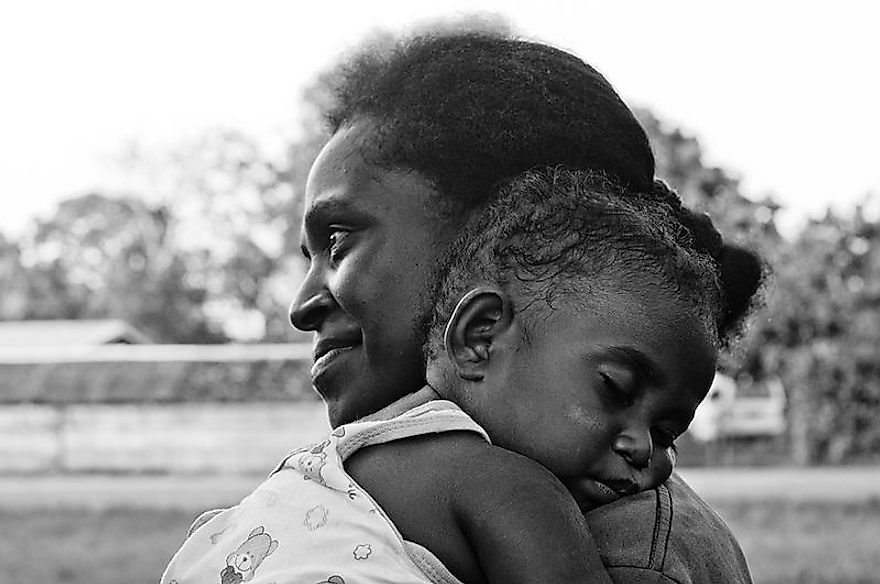Countries With The Youngest Mother's Average Age At First Birth

When given a choice, many women decide that they would like to become biological mothers. Some women are not given the choice. Attempting pregnancy can be a very difficult process, filled with health risks for both the mother and the baby. This fact is especially true in countries with scarce economic resources and lacking healthcare infrastructure. Many factors influence this decision. Cultural norms often dictate that the purpose of women is to be mothers. In some countries, families and communities pressure a young wife to prove her fertility early in the marriage. Religion may also play a role in defining women as mothers. In numerous countries, women become mothers at a very young age. This article takes a look at those places.
Countries with Youngest First-Time Mothers
In 21 different countries, the average age that women become mothers for the first time is between 19.6 years and 18 years old. The majority of these countries are in Africa. In fact, Angola (18 years old), Bangladesh and Niger (18.1 years old), and Chad (18.2 years old) take the first three positions. With an average so low, it means that many girls are becoming pregnant at a much younger age. In Niger, 51% of mothers between the ages of 20 and 24 report having had children before the age of 18. Pregnancies at a young age are a public health and human rights issue.
Although many women become mothers outside of marriage, these countries also have a high incidence of childhood marriages which contribute to the young age of first-time mothers. Teenage pregnancies commonly result in higher rates of maternal mortality, postpartum bleeding, underage birth weights, and death in the first year. For women who survive, becoming a young mother means giving up on basic education and can often be an isolating experience. Not ensuring women’s education contributes to the underdeveloped economies of these countries. When girls become mothers before they become educated, they are unable to participate in the formal workforce thereby helping the economy to grow. For the country, it is an economic loss. For the girl, it is the loss of quality of life.
In countries like Mali (18.6 yrs), Guinea, Uganda, Mozambique, and Malawi (all 18.9), contraceptives to prevent pregnancies are difficult to obtain. Sometimes this is because there are no nearby health clinics, or the cost is too high. Other times this is because the women are not permitted by their husbands to seek family planning. The inability to have children is seen as a weakness in men. Unfortunately, gender inequality is rampant throughout Africa, Asia, and the Middle East and women are more often forced into unplanned pregnancies than not.
Curbing Teenage Pregnancy
A comprehensive approach must be taken to reduce the number of teenage pregnancies. Government leaders need to increase efforts to achieve gender equality. This may involve inviting nongovernmental organizations to help fill the gaps that cannot be covered by national resources. Achieving gender equality requires public education for men, women, and communities about the importance of family planning, safe sex, and educating women. This would help to reduce the stigma behind waiting to have children and the distrust of healthcare services. Policies that prevent childhood marriage and support contraception would greatly assist the effort to reduce the occurrence of young mothers as well.
Countries With The Lowest Mother's Mean Age At First Birth
| Rank | Country | Average Age Of Attaining First-Time Motherhood |
|---|---|---|
| 1 | Angola | 18.00 |
| 2 | Bangladesh and Niger | 18.10 |
| 3 | Chad | 18.20 |
| 4 | Mali | 18.60 |
| 5 | Guinea, Uganda, Mozambique, Malawi | 18.90 |
| 6 | Liberia, Gaza Strip, Botswana, Sierra Leone | 19.00 |
| 7 | Zambia | 19.20 |
| 8 | Sao Tome, Principe, Burkina Faso | 19.40 |
| 9 | Cabo Verde, Madagascar, Swaziland | 19.50 |
| 10 | Tanzania, Ethiopia | 19.60 |







